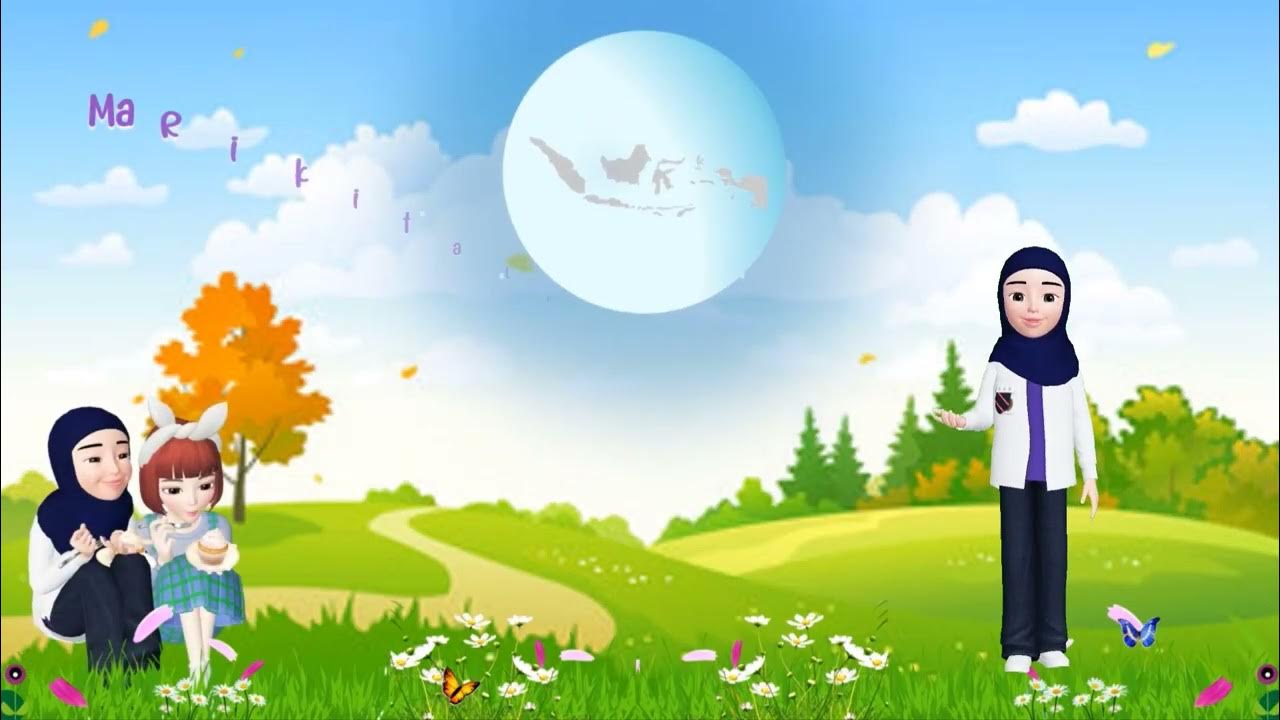Video pengamalan sila 4 dan 5 Pancasila
Summary
TLDRThis educational video teaches children about the practice of the 4th and 5th principles of Pancasila. The video showcases a family deliberating over a vacation destination, exemplifying democratic decision-making and social justice. It highlights the importance of respecting opinions and making fair, consensus-driven decisions. The video connects these practices with Islamic teachings, emphasizing the values of cooperation, fairness, and mutual respect. The lesson encourages children to apply these principles in daily life, fostering harmony and justice both at home and school.
Takeaways
- 😀 The importance of health is emphasized, with guidance on maintaining it through nutritious food and proper hygiene.
- 😀 The script introduces the practice of Pancasila, focusing on the 4th and 5th principles in the lesson.
- 😀 The five principles of Pancasila are highlighted: Belief in one God, Just and civilized humanity, Indonesian unity, Democracy led by deliberation, and Social justice for all Indonesians.
- 😀 The script engages children by asking them to recall the five principles of Pancasila.
- 😀 The family deliberation in the story is an example of applying the 4th principle (democracy led by deliberation).
- 😀 The importance of respecting others' opinions is emphasized in family decisions, such as choosing a vacation destination.
- 😀 The concept of mutual respect in family discussions is shown, where everyone’s opinion is considered in decision-making.
- 😀 The 4th principle of Pancasila is practiced through activities like participating in elections and respecting the results of deliberation.
- 😀 The 5th principle of Pancasila is demonstrated through practices like helping others, mutual cooperation, living frugally, and respecting others' opinions.
- 😀 Islamic teachings align with the 4th and 5th principles of Pancasila, particularly regarding consultation and fairness, as found in the Qur'an (Surah Al-Imran, verse 159).
Q & A
What is the main focus of this lesson?
-The main focus of this lesson is to teach the children about the practice of the 4th and 5th principles of Pancasila, which are deliberation and social justice.
What are the five principles of Pancasila mentioned in the script?
-The five principles of Pancasila mentioned are: 1) Belief in the One and Only God, 2) Just and Civilized Humanity, 3) Indonesian Unity, 4) Democracy led by the wisdom of deliberation in representation, and 5) Social Justice for all Indonesian people.
How is deliberation illustrated in the video?
-Deliberation is illustrated through a family discussion about where to go for a vacation. The family members share their opinions, listen to each other, and reach a consensus on visiting grandma's house.
What role does Siti play in the family discussion?
-Siti initially disagrees with the family's decision to visit grandma's house, wanting to go to the beach instead. However, she eventually accepts the decision after her family members deliberate and come to a consensus.
What principle of Pancasila is demonstrated through the family's discussion?
-The principle of democracy, led by the wisdom of deliberation in representation (4th principle), is demonstrated as the family listens to each other's opinions and makes a fair decision.
What is an example of the practice of the 5th principle of Pancasila shown in the lesson?
-An example of the practice of the 5th principle of Pancasila is being fair by listening to everyone's opinions, as shown in the family discussion about where to go on vacation.
What are some real-life examples of the 5th principle of Pancasila?
-Real-life examples include helping others, mutual cooperation, living frugally, and respecting the opinions of others.
What Quranic verse is referenced in the lesson, and what does it emphasize?
-The Quranic verse referenced is Surah Al-Imran, verse 159, which emphasizes consulting others in matters of importance and placing trust in Allah after making a decision.
What advice does Ustadzah give to the children at the end of the lesson?
-Ustadzah advises the children to apply the practice of the 4th and 5th principles of Pancasila in their daily lives and to complete the tasks in the PKN book.
What should the children do after completing the lesson?
-After completing the lesson, the children are advised to say 'Hamdalah' (praise to Allah) and work on pages 6-10 of the PKN book.
Outlines

This section is available to paid users only. Please upgrade to access this part.
Upgrade NowMindmap

This section is available to paid users only. Please upgrade to access this part.
Upgrade NowKeywords

This section is available to paid users only. Please upgrade to access this part.
Upgrade NowHighlights

This section is available to paid users only. Please upgrade to access this part.
Upgrade NowTranscripts

This section is available to paid users only. Please upgrade to access this part.
Upgrade NowBrowse More Related Video

Pendidikan Pancasila Bab 1 : Mengenal Lingkungan Sekitar - Halaman 1-4 Kelas 4 Kurikulum Merdeka

PEMBELAJARAN SD: KELAS 1 TEMA 4 SUBTEMA 1 PEMBELAJARAN 1

Video Pembelajaran pengamalan sila ketiga Pancasila

Sikap Yang Sesuai Pengamalan Sila Pancasila dari Sila ke-1 sampai ke-5 ( Penerapan Nilai Pancasila)

Keragaman Sosial dan Budaya Indonesia

KURIKULUM MERDEKA - KELAS 5 - Pendidikan Pancasila - BAB 3 - KERAGAMAN BUDAYA INDONESIAKU
5.0 / 5 (0 votes)